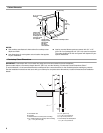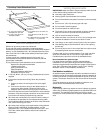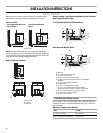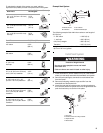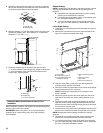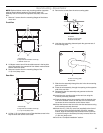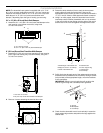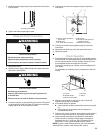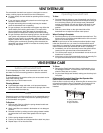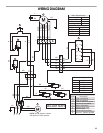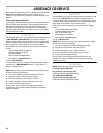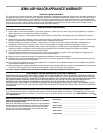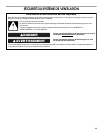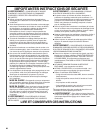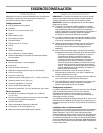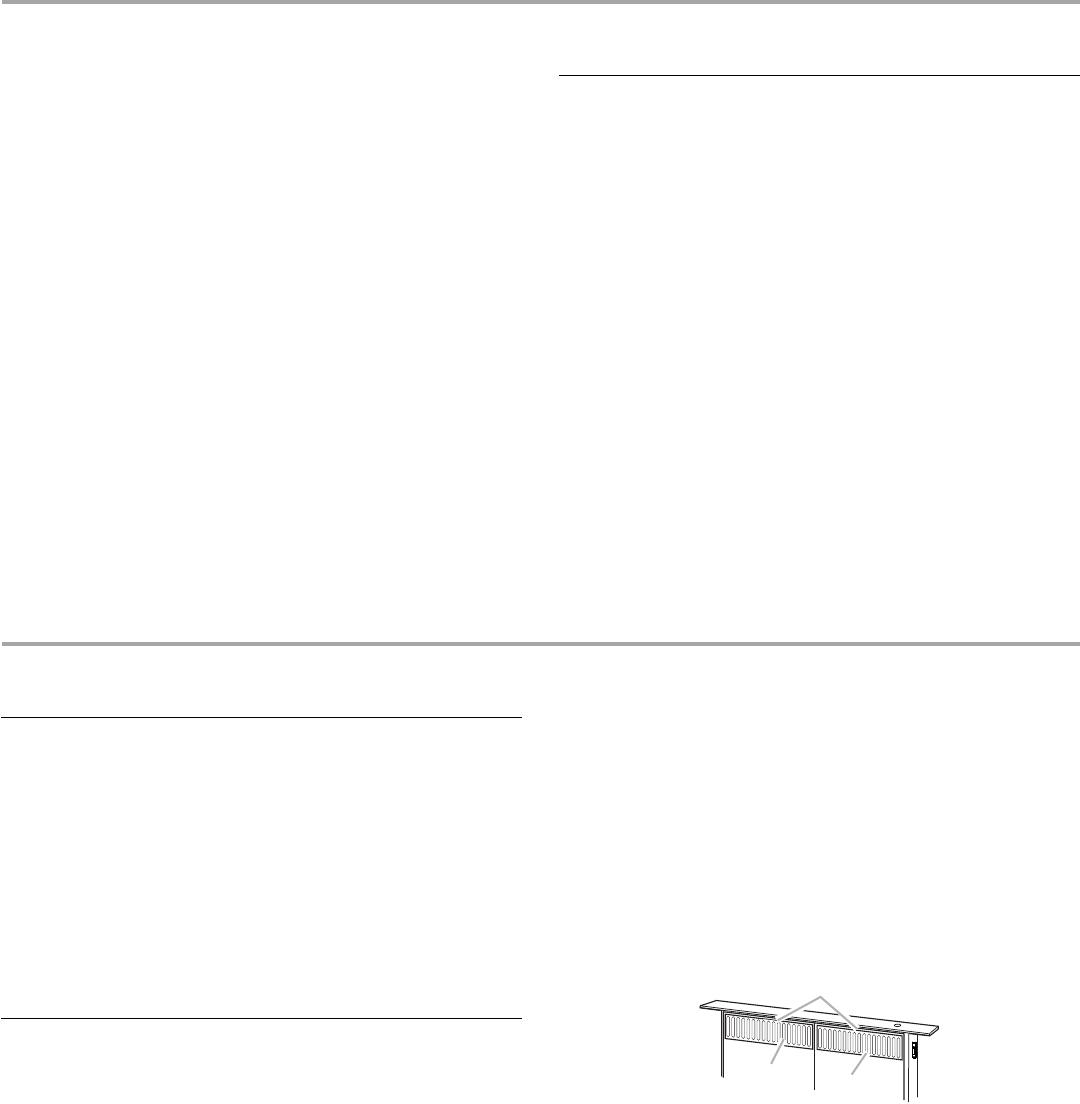
14
VENT SYSTEM USE
The retractable downdraft vent system is designed to remove
smoke, cooking vapors and odors from the cooktop area.
■ For best results, the vent should be operating before cooking
is started.
■ If you use large or tall utensils, place them on the large rear
element or burner surface.
■ A higher heat setting than normally used may be needed
when the downdraft vent is operating.
■ For gas cooktops, the downdraft vent system may affect the
flame stability and cooking performance. To improve the
burner performance, either decrease the downdraft vent
blower speed or increase the cooktop burner flame setting.
■ For gas cooktops with flame sensing ignitions, the downdraft
vent system may disperse the flame away from the spark
igniter and may cause it to continually spark while trying to
reignite a burner that is already lit. To resolve the issue of the
cooktop igniter continuously sparking, either decrease the
downdraft vent blower speed or increase the cooktop flame
setting for that burner.
Operating Downdraft Vent
To Use:
1. Push and hold the button on top of downdraft vent for a few
seconds. (This slight delay helps avoid unintentional raising of
the vent during cleaning of the cooktop area.) Retractable
section of downdraft vent will rise. Blower will begin to vent
immediately if blower control knob slider is set to an “On”
position.
2. Slide the control slider on the right-hand side of the
downdraft vent to adjust the blower motor speed.
When Cooking Is Complete:
1. Push the button on top of the retractable downdraft vent. The
blower will turn off, and the retractable section of the vent will
return to the closed position.
NOTE:
If a spill occurs on the cooktop that allows liquids to seep
inside the downdraft vent, you must turn the downdraft vent off
immediately. It is possible to cause damage to the downdraft vent if
water is allowed inside the downdraft vent while it is operating.
2. Immediately turn off the downdraft vent at the speed control
located on the right-hand side of the downdraft vent.
3. Turn off the power supply to the downdraft vent at the circuit
breaker box or fuse box.
4. Allow plenty of time for the downdraft vent to dry naturally. Do
not open the downdraft vent to remove the water.
VENT SYSTEM CARE
Surface of Downdraft Vent
To avoid damaging the finish, clean downdraft vent with soap
and water. Do not use scouring powder or abrasive solutions.
Exterior Surfaces:
To avoid damage to the exterior surface, do not use steel wool or
soap-filled scouring pads.
Always wipe dry to avoid water marks.
Cleaning Method:
■ Liquid detergent soap and water, or all-purpose cleanser
■ Wipe with damp soft cloth or nonabrasive sponge, then rinse
with clean water and wipe dry.
Filters
Frequently remove and clean the filter(s) in the retractable section
of the downdraft vent. This will improve the operating efficiency
of the downdraft vent system.
To Replace:
1. Remove each filter by pulling the spring release handle and
then pulling down the filter.
2. Wash metal filters as needed in dishwasher or hot detergent
solution.
3. Reinstall the filter by making sure the spring release handles
are toward the front. Insert metal grease filter into upper
track.
4. Pull the spring release handle down.
5. Push up on metal filter and release handle to latch into place.
6. Repeat steps 1-5 for the other filter.
To Clean:
1. Remove the filter(s) and clean them in a dishwasher or in a
hot detergent solution. The downdraft vent will not operate
when the filters are not in place.
2. Dry the clean filter(s) and reinstall, making sure that they lock
into place.
If Retractable Downdraft Vent Does Not Operate After
Clean Filters Have Been Installed:
Push the filter in as far as it will go. When the filter is removed, the
microswitch behind the filter is inactivated. This feature will not
allow the vent system to operate until the filter is properly
installed.
A. Spring release handles
B. Left metal filter
C. Right metal filter
C
A
B



